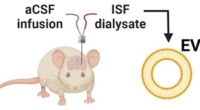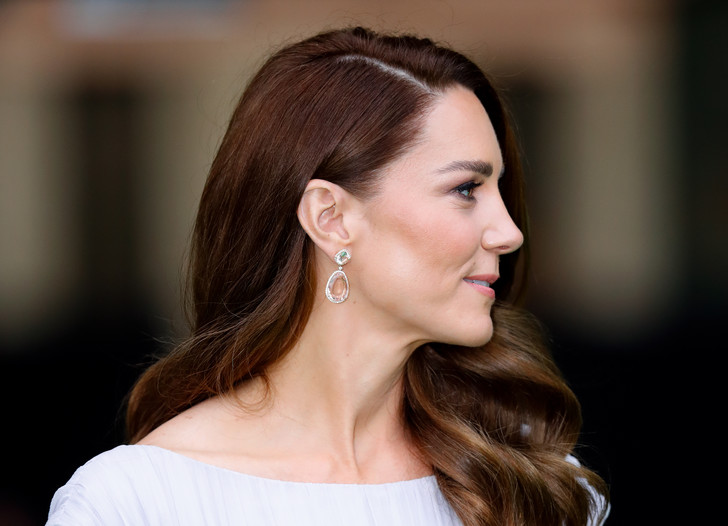In a bid to help those with chronic hip pain, Kate Jochimsen, an assistant professor and director of research in the West Virginia University School of Medicine Division of Athletic Training, is developing a biopsychosocial intervention to address the physical and psychological aspects of rehabilitation simultaneously. She aims to incorporate mind-body interventions into routine physical therapy. Jochimsen’s project, Helping Improve PSychosocial Health (HIPS), will include aspects of mindfulness like self-compassion, progressive relaxation, and mindful awareness of pain, as well as goal setting, pain education, adaptive thinking, and diaphragmatic breathing techniques that will be taught and incorporated into rehabilitation. The feasibility randomized controlled trial will involve physical therapists providing participants with three mind-body sessions in the laboratory and three sessions on the phone. The West Virginia Clinical and Translational Science Institute will support the implementation of the HIPS program.
Incorporating mind-body interventions into routine physical therapy may help people with chronic hip pain, according to a new research project led by Kate Jochimsen, assistant professor and director of research in the West Virginia University School of Medicine Division of Athletic Training. Although it is common knowledge that regular exercise can reduce musculoskeletal pain, some chronic pain sufferers avoid it, hoping to minimize their symptoms. Jochimsen aims to address this behavior in people experiencing chronic hip pain by developing a biopsychosocial intervention that addresses the physical and psychological aspects of rehabilitation simultaneously.
Jochimsen is motivated by the frustration and hopelessness that she observes in some patients participating in the current unidimensional, siloed treatment of chronic hip pain. She plans to develop and implement Helping Improve PSychosocial Health — or HIPS — a mind-body intervention delivered by physical therapists, with support from the West Virginia Clinical and Translational Science Institute. Jochimsen received a $769,697 National Institutes of Health award and funding through the National Center for Complementary and Integrative Health to back her efforts.
Current treatment options for patients with non-arthritic hip pain conditions work well for some. However, many are left with an unacceptable level of pain and dysfunction. In addition, patients in rural West Virginia communities are especially vulnerable to the disability associated with failed treatment due to rampant comorbidities and economic disparities. Jochimsen is committed to helping change that through the holistic management of musculoskeletal pain conditions that goes beyond current treatment which follows an outdated model largely ignoring the impact of psychological health.
The HIPS mind-body intervention is multimodal and will include aspects of mindfulness like self-compassion, progressive relaxation, and mindful awareness of pain, as well as goal setting, pain education, adaptive thinking, and diaphragmatic breathing techniques that will be taught and incorporated into rehabilitation. Jochimsen hopes that by addressing both the physical and psychological aspects of rehabilitation, the HIPS program will help chronic hip pain sufferers regain their mobility and improve their overall quality of life.
Kate Jochimsen, assistant professor and director of research in the West Virginia University School of Medicine Division of Athletic Training, is developing a biopsychosocial intervention to address the physical and psychological aspects of rehabilitation simultaneously for people experiencing chronic hip pain. She plans to incorporate mind-body interventions into routine physical therapy to help those with chronic hip pain.
Jochimsen received a $769,697 National Institutes of Health award and funding through the National Center for Complementary and Integrative Health to back her efforts. The five-year NIH-funded project is broken into three stages including intervention development, refinement, and a feasibility randomized controlled trial. Jochimsen is already interviewing patients with chronic hip pain and the physical therapists who treat them to identify intervention and training preferences.
The mind-body intervention, Helping Improve PSychosocial Health (HIPS), will include aspects of mindfulness like self-compassion, progressive relaxation, and mindful awareness of pain, as well as goal setting, pain education, adaptive thinking, and diaphragmatic breathing techniques that will be taught and incorporated into rehabilitation. Jochimsen aims to address both the physical and psychological aspects of rehabilitation and help chronic hip pain sufferers regain their mobility and improve their overall quality of life.
The feasibility randomized controlled trial will involve physical therapists providing participants with three mind-body sessions in the laboratory and three sessions on the phone. Subsequent trials will embed the mind-body intervention into the flow of the physical therapy clinic. Robin Pollini, an associate professor in the WVU School of Medicine and WVU School of Public Health, will serve as a co-mentor of the trial.
Sijin Wen, Dr. Derik Geist, and Ronald Reed, all of WVU, will provide additional mentorship, as will Kristin Archer of Vanderbilt University and Trevor Jones of HealthWorks Rehab & Fitness in Morgantown. The West Virginia Clinical and Translational Science Institute will support the implementation of the HIPS program.
Don’t miss interesting posts on Famousbio










